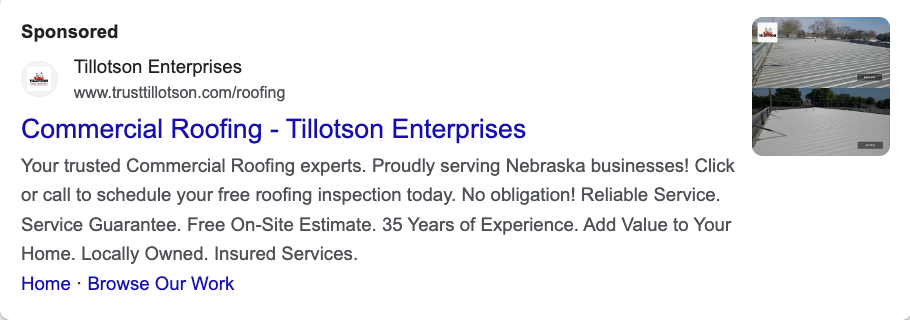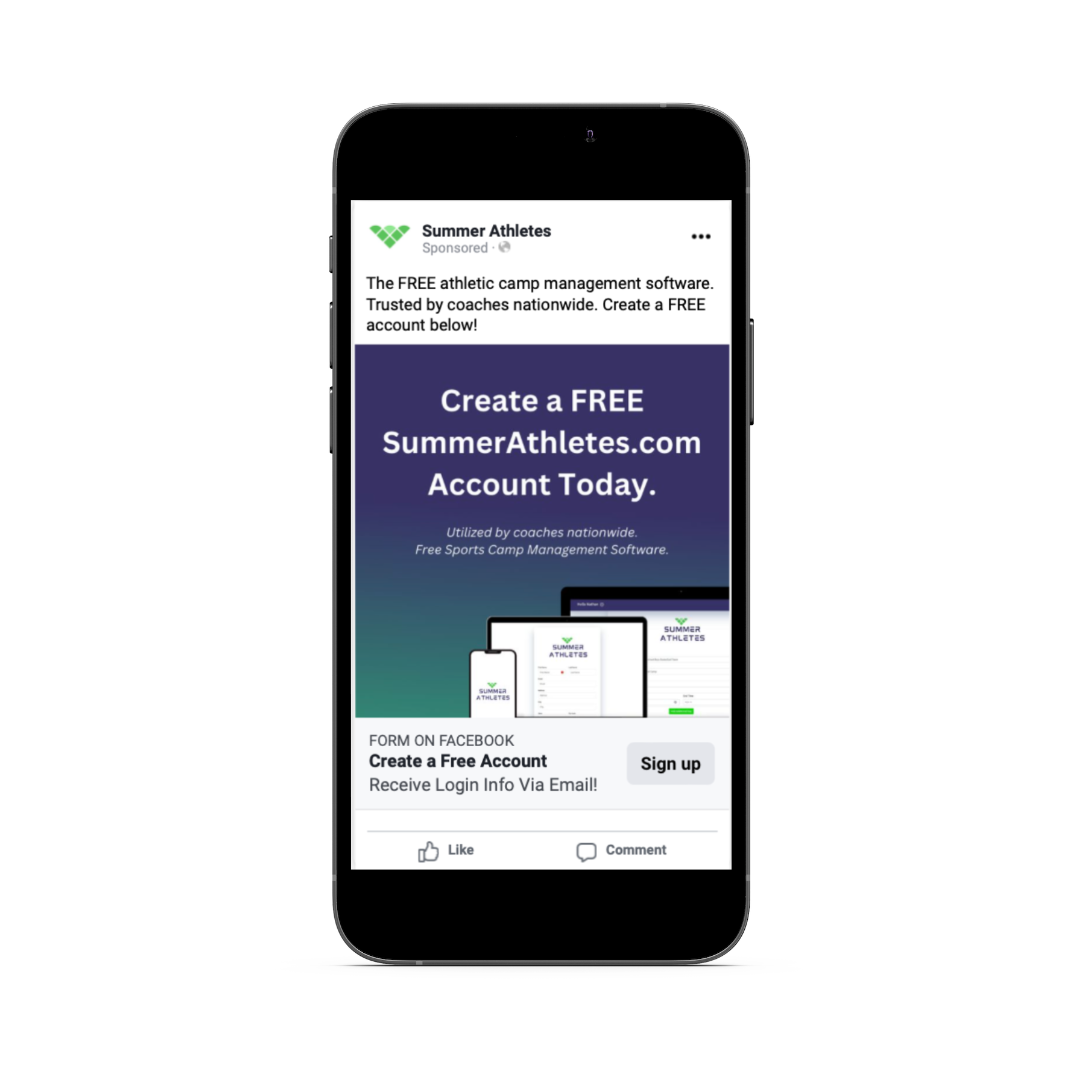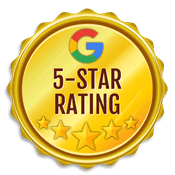Is Advertising on Google Worth It in 2024? Let's Look at 10 Pros and Cons:
Google Ads is a popular way for businesses to reach their customers online. But is it worth the money in 2024? Let's explore the pros and cons of using Google Ads so you can decide if it's the right choice for your business.
What Is Google Ads?
Google Ads is an online advertising service where you can pay to show your ads on Google search results, websites, and videos. When done right, Google Ads can be one of the most effective marketing channels for your business. Outside of the most popular "Search Campaigns, there are other types of Google Ads:
- Google Search Ads: Text ads that appear on Google search results.
- Google Display Ads: Visual ads on websites.
- Google Video Ads (YouTube Ads): Ads that play before or during YouTube videos.
- Google Shopping Ads: Product ads that show up on Google Shopping.
- Gmail Ads: Ads that display within the promotions tab in Gmail.
- Google Discovery Ads: Personalized ads that appear on the YouTube app, the Google app, and the Gmail app

Are Google Ads Worth It?
Google Ads can significantly boost your online presence and drive sales, thanks to its wide reach and measurable results. However, it's essential to weigh the benefits against the challenges, such as potential high costs and the need for ongoing management.
In the following sections, we'll dive into the detailed pros and cons to help you decide if Google Ads are the right fit for your business.
10 Pros of Advertising on Google for Businesses:
- Point of Purchase Visibility and Targeted Reach
- Measure a Direct ROI in Real-Time
- Daily Cost Control
- Extreme Flexibility
- Google Ads Is Faster Than SEO
- High Conversion Rates
- Free Brand Awareness
- Easy Scalability
- Easy Integration with Other Platforms
- Comprehensive Support and Resources
1. Reach Consumers When They're Looking For You
Google Ads allows businesses to reach potential customers right at the point of purchase. If it's not a referral, where do you go when you're looking for a new product or service?
More often than not, you turn to Google when you are ready to buy, making the Google Search Ads placement perfect. Running ads for searches like "best roofing company near me", "best dentist near me", "best [your product/service] near me", is one of the best ways to ensure you are showing to your ideal customers when they are looking for you.
By showing your ads to relevant customers at the exact moment they are looking for you, you're destined to earn $4, $5, $10, $20, $100 for every dollar you put into Google Ads. Of course, results are not guaranteed, but this is speaking off our of experience at Murray Marketing Services.
Additionally, Google Ads offers advanced targeting options, such as geographic location, device type, and even the time of day your ads appear. This precision helps you reach your exact customer base, improving your ad performance. By utilizing Google’s targeting tools, you can increase the effectiveness of your campaigns and ensure that your advertising budget is spent wisely. Research shows that targeted ads can boost conversion rates by up to 50% (Google).
2. Measure a Direct ROI in Real-Time
What matters most to a business owner? The bottom line. Is what we are doing actually working?
One of the standout features of Google Ads is the ability to measure your return on investment (ROI) in real-time. By setting up full funnel conversion tracking, you can monitor every stage of the customer journey, from initial click to final purchase. This allows you to see which ads are driving sales and which ones need adjustment. According to Google, businesses that use conversion tracking see an average increase of 21% in their ROI.
Moreover, real-time data enables you to make informed decisions quickly. You can adjust your bids, change your targeting, and tweak your ad copy based on the performance metrics you see. This agility helps you maximize your advertising budget and improve overall campaign effectiveness. HubSpot reports that companies that track their marketing metrics are 2x more likely to see increased ROI year over year.

Real client results. Read the full case study here!
3. Daily Cost Control
Google Ads provides you with complete control over your advertising budget. You can set a daily budget for each campaign, ensuring you never spend more than you're comfortable with. This level of control helps businesses manage their advertising expenses effectively, especially those with limited marketing budgets. According to Google, advertisers can start with as little as $1 a day.
Additionally, the cost-per-click (CPC) model means you only pay when someone actually clicks on your ad, making your spending more efficient. You can also set bid limits to control how much you're willing to pay for each click. This flexibility allows you to scale your campaigns up or down based on their performance, ensuring you get the most value out of your advertising spend. Research from WordStream shows that small businesses see an average CPC of $1 to $2 on Google Ads.
4. Extreme Flexibility
Google Ads offers extreme flexibility in how you create and manage your campaigns. You can choose from various ad formats, including text, image, video, and shopping ads, to best showcase your products or services. This variety allows you to tailor your ads to different audiences and marketing goals. According to Google, video ads increase brand awareness by 170%.
Furthermore, you can customize your ads with different headlines, descriptions, and calls to action to see what resonates most with your audience. Google Ads also allows for easy adjustments, so you can quickly adapt your campaigns to market changes or new business objectives. This flexibility is crucial for staying competitive in a fast-paced digital environment. A study by SEMrush found that businesses using multiple ad formats see a 34% higher engagement rate.
5. Google Ads Is Faster Than SEO
While search engine optimization (SEO) is essential for long-term growth, it can take months to see results. Google Ads, on the other hand, can drive traffic to your website almost immediately. This speed is especially beneficial for new businesses or time-sensitive promotions. According to HubSpot, paid search can increase brand awareness by up to 80%.
Additionally, Google Ads can complement your SEO efforts by providing valuable keyword data and insights. By analyzing which keywords drive the most traffic and conversions through paid search, you can refine your SEO strategy for better organic performance. This synergy between paid and organic search can significantly boost your overall online presence. Research shows that combining SEO and PPC can result in a 25% increase in clicks (Moz).

6. High Conversion Rates
Google Ads targets users who are actively searching for what you offer, leading to higher conversion rates. These users have a high intent to purchase, making them more likely to convert compared to other forms of advertising.
According to WordStream, the average conversion rate for Google Ads is around 4.40% for search ads. Although, for Murray Marketing Services, our clients see an average of 8% to 15%+ conversion rates.
Moreover, Google Ads provides tools to optimize your campaigns for better results. You can use conversion tracking to identify which ads and keywords are driving the most sales and make adjustments to improve performance. A/B testing allows you to experiment with different ad variations to see which ones perform best. These optimization techniques help you get the most out of your advertising budget and achieve your business goals. Research by Unbounce shows that businesses that use A/B testing see a 37% higher conversion rate.

Real client results. Read the full case study here!
7. Free Brand Awareness
Even if users don't click on your ads, they still see your brand, which helps increase brand awareness. On Google Search Ads, if they don't click on your ad, you don't pay. That's free brand awareness.
In addition, Google's visibility is especially valuable for new businesses looking to establish themselves in the market. According to Google, display ads can increase brand awareness by 63%.
On another level, remarketing ads allow you to stay in front of users who have previously visited your website. These ads remind potential customers about your products or services, increasing the chances of conversion. Studies show that remarketing ads can boost conversion rates by up to 50% (Criteo). This continuous exposure helps keep your brand top of mind and encourages repeat visits and purchases.
8. Easy Scalability
Google Ads makes it easy to scale your campaigns as your business grows. You can increase your budget, expand your target audience, and add more ad variations to reach a broader audience. This scalability ensures that your advertising efforts can grow alongside your business. According to a study by AdEspresso, scaling ad campaigns can increase ROI by up to 70%.
Furthermore, Google Ads allows you to test different strategies on a small scale before rolling them out more broadly. This approach minimizes risk and ensures that you are investing in strategies that work.
By scaling your campaigns effectively, you can reach more customers and achieve your business goals. Research by CMO Council found that businesses that scale their advertising efforts see a 30% higher revenue growth.
9. Easy Integration with Other Platforms
Google Ads integrates seamlessly with other Google tools like Google Analytics and YouTube, making it easier to manage your marketing efforts. This integration provides a comprehensive view of your marketing performance and helps you make data-driven decisions. According to Google, businesses that use both Google Ads and Google Analytics see a 15% increase in sales.
Additionally, you can use Google My Business to promote your local business and drive more traffic to your physical location. This integration helps you create a cohesive marketing strategy and reach your target audience more effectively. A study by Think with Google found that businesses that integrate their marketing platforms see a 20% improvement in efficiency.
10. Comprehensive Support and Resources
Google offers extensive support for advertisers, including a help center, online courses, and community forums. These resources can help you learn how to use Google Ads effectively and get the most out of your campaigns. According to Google, businesses that utilize these resources see a 26% higher ad performance.

10 Cons of Advertising on Google for Businesses:
- Cost
- Complexity
- Potential to Waste Clicks
- Ad Fatigue
- No Guaranteed Results
- Time-Consuming Management
- Algorithm Changes
- Dependence on Quality Score
- Negative Impact of Poor Ads
- High Competition
1. Cost
Google Ads can be expensive, especially if not run properly. The cost per click (CPC) can be high, and it's important to manage your budget carefully to avoid overspending. However, with careful planning and optimization, you can get a great return on your investment. According to WordStream, the average CPC for Google Ads across all industries is $2.69 for search ads.
2. Google Ads Complexity
Google Ads can be tricky to understand, especially for beginners. It has a lot of features and settings that can be overwhelming. Learning how to use it effectively can take time, but the effort is worth it for the potential results. According to HubSpot, 63% of companies say generating traffic and leads is their top marketing challenge.
If you don't know how to run Google Ads, or want to make sure you're being as efficient as possible with your spend, consider partnering with an award winning Google Ads Agency.
3. Potential to Waste Clicks
Without proper management, it's easy to waste money on clicks that don't convert into sales. This can happen if your ads are shown to people who aren't interested in your products or services.
To avoid this, it's important to use a strong negative keyword list. Negative keywords prevent your ads from showing up for searches that are irrelevant to your business, saving you money and improving your campaign performance. According to WordStream, using negative keywords can increase your ROI by 21%.
4. Ad Fatigue
People might get tired of seeing ads, making them less effective over time. This is known as ad fatigue. To combat this, you can regularly update your ads with new images and messages to keep them fresh and engaging. According to a study by Nielsen, ad fatigue can decrease ad recall by 47%.
5. No Guaranteed Results
Even with Google Ads, there's no promise of success. Results can vary based on many factors, including your industry, competition, and the quality of your ads. However, with the right strategy and optimization, you can improve your chances of success. If you want to have a closer results guarantee, consider partnering with a Google Ads agency.
6. Time-Consuming Management
Managing Google Ads can take a lot of time and effort. You need to monitor your campaigns regularly, analyze performance data, and make adjustments to improve results. This ongoing management can be challenging, but it's crucial for getting the best results. According to a survey by HubSpot, 63% of marketers say their biggest challenge is generating traffic and leads.
If you save time and improve your results, consider partnering with Murray Marketing Services for expert Google Ads management.
7. Algorithm Changes
Google frequently updates its algorithms, which can affect how your ads perform. Staying updated with these changes and adapting your campaigns accordingly is important to maintain good results. While this can be challenging, it also presents opportunities to stay ahead of the competition. According to Search Engine Land, Google makes over 3,200 algorithm changes each year.
8. Dependence on Quality Score
Google uses a Quality Score to decide how much you pay and where your ad shows. This score is based on the relevance and quality of your ads and landing pages. Maintaining a high Quality Score is crucial for the success of your campaigns. According to WordStream, improving your Quality Score can lower your cost per click by up to 50%.
9. Negative Impact of Poor Ads
Badly made ads can hurt your brand's reputation. It's important to create high-quality ads that are engaging and relevant to your audience. Investing time and resources into making good ads can help you avoid this issue. According to a report by AdEspresso, 60% of consumers are annoyed by generic, irrelevant ads.
10. High Competition
Some industries are very competitive, making it harder for your ads to stand out. This can drive up the cost of your ads and make it challenging to achieve your goals. However, with the right strategy and optimization, you can still succeed even in competitive markets. According to WordStream, the average CPC in competitive industries like finance and insurance can be as high as $55.
Google Ads vs Facebook Ads: What’s the Difference?
When it comes to online advertising, two of the most popular platforms are Google Ads and Facebook Ads. Understanding the key differences between them can help you decide which is the best fit for your business.
Google Ads
Google Ads targets users based on their search intent. This means your ads are shown to people actively searching for products or services like yours. The advantage of this approach is that it reaches potential customers at the exact moment they are looking to make a purchase. Additionally, Google Ads offers various formats, including search, display, shopping, and video ads, providing flexibility in how you present your offerings.

Facebook Ads
Facebook Ads on the other hand, targets users based on their interests and demographics. This platform excels in brand awareness and engagement by showing ads to users who may not be actively searching for your products but fit the profile of your ideal customer. Facebook Ads are visually appealing and interactive, which can be particularly effective for businesses looking to build a community or increase brand loyalty.
In summary, if your goal is to capture high-intent leads ready to convert, Google Ads may be the better option. If you're aiming to build brand awareness and engage with a broader audience, Facebook Ads could be more effective. Many businesses find success by integrating both platforms into their marketing strategy, leveraging the strengths of each to maximize their reach and impact.

Let’s Recap: How to Set Yourself Up for Success with Google Ads
To make the most out of Google Ads, here are some essential steps to set yourself up for success:
- Define Clear Goals: Start by identifying what you want to achieve with your Google Ads campaign. Whether it's increasing website traffic, generating leads, or boosting sales, having clear goals will guide your strategy.
- Conduct Keyword Research: Use tools like Google Keyword Planner to find relevant keywords that your target audience is searching for. Focus on keywords with high search volume and low competition to get the best results.
- Create Compelling Ads: Write engaging ad copy that highlights the benefits of your products or services. Use strong calls-to-action to encourage clicks and conversions. Test different ad variations to see which performs best.
- Optimize Landing Pages: Ensure that your landing pages are relevant to your ads and provide a seamless user experience. Fast loading times, clear messaging, and easy navigation are crucial for high conversion rates.
- Set a Realistic Budget: Determine how much you're willing to spend and allocate your budget wisely. Monitor your spending and adjust your bids to stay within your budget while maximizing your return on investment.
- Track and Analyze Performance: Use Google Ads and Google Analytics to track the performance of your campaigns. Analyze key metrics like click-through rates, conversion rates, and cost per conversion. Use this data to make informed adjustments and improve your results.
- Use Negative Keywords: Implement a strong negative keyword list to avoid wasting money on irrelevant clicks. This ensures your ads are shown only to the most relevant audience.
- Partner with a Google Ads Agency: By partnering with a Google Ads agency with proven results, you can not only save your time, but improve your results.
By following these steps, you can create effective Google Ads campaigns that drive meaningful results for your business.
The Bottom Line: Are Google Ads Worth It?
Google Ads can significantly boost your online presence and drive sales, thanks to its wide reach and measurable results. The platform offers numerous benefits, including point-of-purchase visibility, targeted reach, and the ability to measure ROI in real-time. While there are challenges such as potential high costs and the need for ongoing management, the advantages often outweigh these drawbacks.
In the end, whether Google Ads are worth it for your business depends on your specific goals, budget, and ability to effectively manage and optimize your campaigns. By carefully planning your strategy and possibly seeking expert assistance, you can maximize the benefits and make Google Ads a valuable part of your marketing efforts. If you're ready to start or need help with your current campaigns, Murray Marketing Services is here to assist you in achieving the best results.
Conclusion
Advertising on Google in 2024 has many benefits, but also some challenges. If you want quick results, measurable success, and high reach, Google Ads could be a great choice. However, it’s important to manage your campaigns carefully and stay updated with best practices. Whether you're a small business or a large corporation, Google Ads can help you reach your marketing goals and grow your business.
If you’re ready to start your first Google Ads campaign or want a free audit of your current campaign, contact Murray Marketing Services today! Let us help you get the most out of your advertising budget and achieve your business goals.
About the Author:
Nathan Murray, Founder, Murray Marketing Services
Murray Marketing Services is a client-first digital marketing agency providing services in website design, Google advertising, video production, local SEO, graphic design, and social media marketing. Recently, we were voted 2023's Best IT Services and Best Video Services Company by readers of the Kearney Hub.
As an extension of your team, our mission is to grow your business. We work with your team to pair the goals of your business with data-backed digital marketing strategies. Since launching in 2021, we've had the privilege of working with over 75 businesses across 14 different states.








